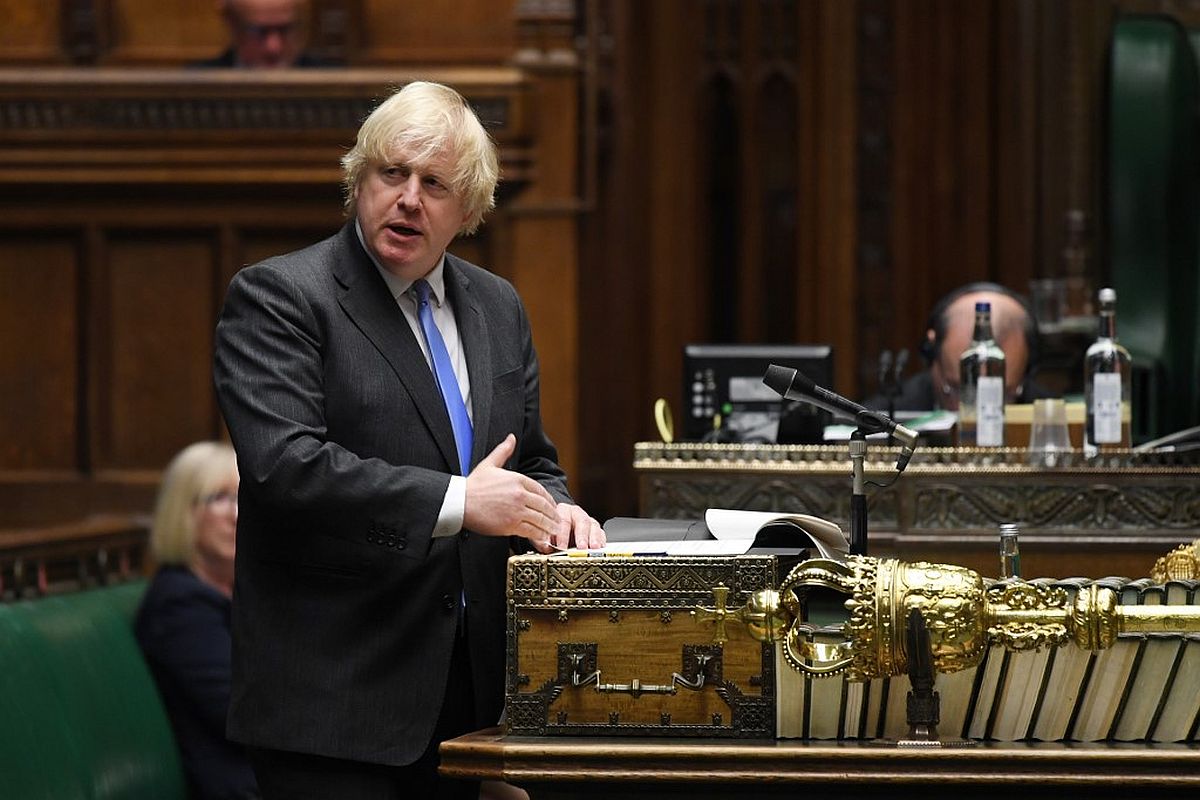As Africa toes the Chinese line…
Every year, China’s minister of foreign affairs embarks on what has now become a customary odyssey across Africa.
China has imposed sanctions on nine UK citizens ~ including the five parliamentarians ~ who are among its most vocal critics in the UK. The government in Beijing said it was sanctioning the group for spreading what it called “lies and disinformation” about China.

Britain's Prime Minister Boris Johnson. (Photo: AFP)
The standoff between the People’s Republic of China and five MPs of the United Kingdom is embedded in Beijing’s attempts to stifle what London calls “free and open debate”.
For the past few years, there has been neither save brutal repression of a minority segment. In a joint statement, the five parliamentarians, who have been sanctioned by Beijing and banned from entering China, have signalled their intent to “redouble” their efforts to campaign against human rights abuses, most particularly the repression of Uighurs in Xinjiang province.
Advertisement
Thus has the sordid tale of repression been internationalised. Three MPs, including the ex-Tory leader, Sir Iain Duncan Smith, and two peers said China’s action was an attempt to stifle “free and open debate”. Prime Minister Boris Johnson has said emphatically that he “stands firmly” with those targeted by China for criticising its treatment of the Uighur people.
Advertisement
The sanctions follow similar moves against China. by the United States, Canada and the European Union. As of now, Britain, at any rate its legislative segment, has been quite the most robust in its response. Prime Minister Johnson and President Joe Biden have “expressed their concern about retaliatory action taken by China,” during a phone call on Friday.
China has imposed sanctions on nine UK citizens ~ including the five parliamentarians ~ who are among its most vocal critics in the UK. The government in Beijing said it was sanctioning the group for spreading what it called “lies and disinformation” about China.
In response, Sir Iain Duncan Smith, along with MPs Nusrat Ghani and Tim Loughton, and the peers Lord Alton and Baroness Kennedy, said: “Today’s sanctions have unmasked the Chinese Communist Party.”
The crisis, therefore, is as much diplomatic as it is ideological, with human considerations being at the core of the raging kerfuffle. “These actions are not only an attack on us as individuals but an attempt to stifle the free and open debate that is at the heart of our parliamentary democracy.”
The group added that “intimidation” would encourage them to “redouble” their efforts, as they pledged to continue advocating on behalf of “the Uighurs, Tibetans, Hong Kongers and all other persecuted groups in China”. The scope of Britain’s response has, therefore, been widened.
“These are the true victims of the Chinese government’s authoritarian rule, not us,” they added. In league with the government, the group also called for “international investigations into the alleged abuses” in Xingjian against the Uighurs. From Whitehall to the White House, the cache of sanctions imposed by China has caused a flutter in the roost.
The standoff has happened at a critical juncture in London’s equation with Beijing when the government is trying to strike a balance in its relations with China. In its recent foreign policy review, the UK described China as a “systemic competitor” and “the biggest state-based threat to the UK’s economic security”.
Yet it spoke of pursuing “a positive trade and investment relationship” and cooperating with China on climate change and biodiversity. The outlook is grim post the sanctions.
Advertisement